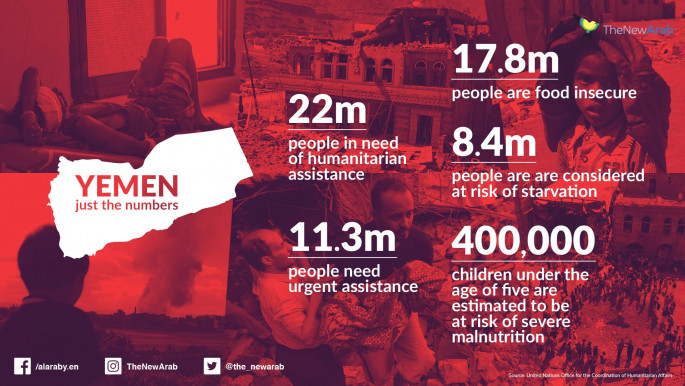Yemen's 'Houthi court' condemns 30 to death for spying
Thirty men, among 36 defendants tried by the criminal court in the rebel-held capital Sanaa, have been in custody for at least the past year, the source told AFP.
"The criminal court today (Tuesday) issued a verdict condemning 30 people to death on charges of spying for the aggression countries," the source said, adding that the other six were acquitted.
He said the men were convicted of supplying the coalition with information on locations for airstrikes.
Amnesty International condemned the verdicts, saying they had targeted "political opposition figures" in "sham trials".
Among those condemned to death was Yussef al-Bawab, a 45-year-old father of five and linguistics professor, who had been "arbitrarily arrested in late 2016", it said in a statement.
"Since the Houthi de facto authorities assumed control of the justice system in 2015, they have progressively utilised the Sanaa-based SCC (Specialised Criminal Court) to target persons they deem to be opponents or even just critics," said Lynn Maalouf, Amnesty's Middle East research director.
The military coalition intervened in Yemen in March 2015, a few months after the Houthi rebels captured Sanaa, in a bid to back and reinstate the internationally-recognised government of President Abedrabbo Mansour Hadi. 
Since the Houthis took control of the capital in September 2014, their courts have issued several death sentences for spying.
In May last year, a Sanaa court sentenced two men to death for spying for Riyadh, while in January, the same court condemned to death 22-year old mother Asmaa al-Omeissy and two men on charges of aiding the United Arab Emirates, a key partner in the coalition.
On Tuesday, the supreme court commuted Omeissy's death penalty to 15 years in jail, a judicial source in Sanaa said. There was no decision yet on the two men sentenced with her.
The Houthi rebels have abducted thousands of people since seizing power, many of which remain missing in Yemen as the war rages on, according to a Rights Radar report.
Civilians, activists, academics and politicians remain under Houthi arrest in undisclosed locations around the war-torn country, according to the Rights Radar report entitled Yemen: Victims Behind Bars.
“The amount of people abducted and detained by the Houthi group is estimated at 16,804 detainees since the rebels took over the capital Sanaa on 21 September 2014 until the end of March 2017,” the report states.
Figures suggest that 227 former government buildings, 27 medical clinics, 49 university buildings, 99 public and private schools, 25 sport clubs, 47 judicial buildings and 10 private citizen homes have been converted into prisons, where "torture and abuse" are said to take place.
"The case for missing persons and detainees is a huge one in Yemen for the thousands of families that do not know where their relatives are," Rights Radar founder, Khalid al-Hammadi told The New Arab at the time.
"Those that are detained in Houthi prisons suffer from torture and abuse and are denied their basic rights. They have no legal representation and are held without charge."
The report also said more than 200 minors are believed to be detained by the Houthis as international human rights organisations continue to accuse the rebel group of recruiting child soldiers across the country.
The organisation has called on the international community to put pressure on the Houthi group to stop its systematic detention of opponents, calling on the rebels to “release all the detainees in its detentions and stop the torture”.
Yemen's conflict has killed tens of thousands of people, many of them civilians, relief agencies say, and left millions displaced and in need of aid.
Follow us on Twitter: @The_NewArab





 Follow the Middle East's top stories in English at The New Arab on Google News
Follow the Middle East's top stories in English at The New Arab on Google News

![Israeli forces ordered bombed Gaza's Jabalia, ordering residents to leave [Getty]](/sites/default/files/styles/image_330x185/public/2176418030.jpeg?h=a5f2f23a&itok=_YGZaP1z)
